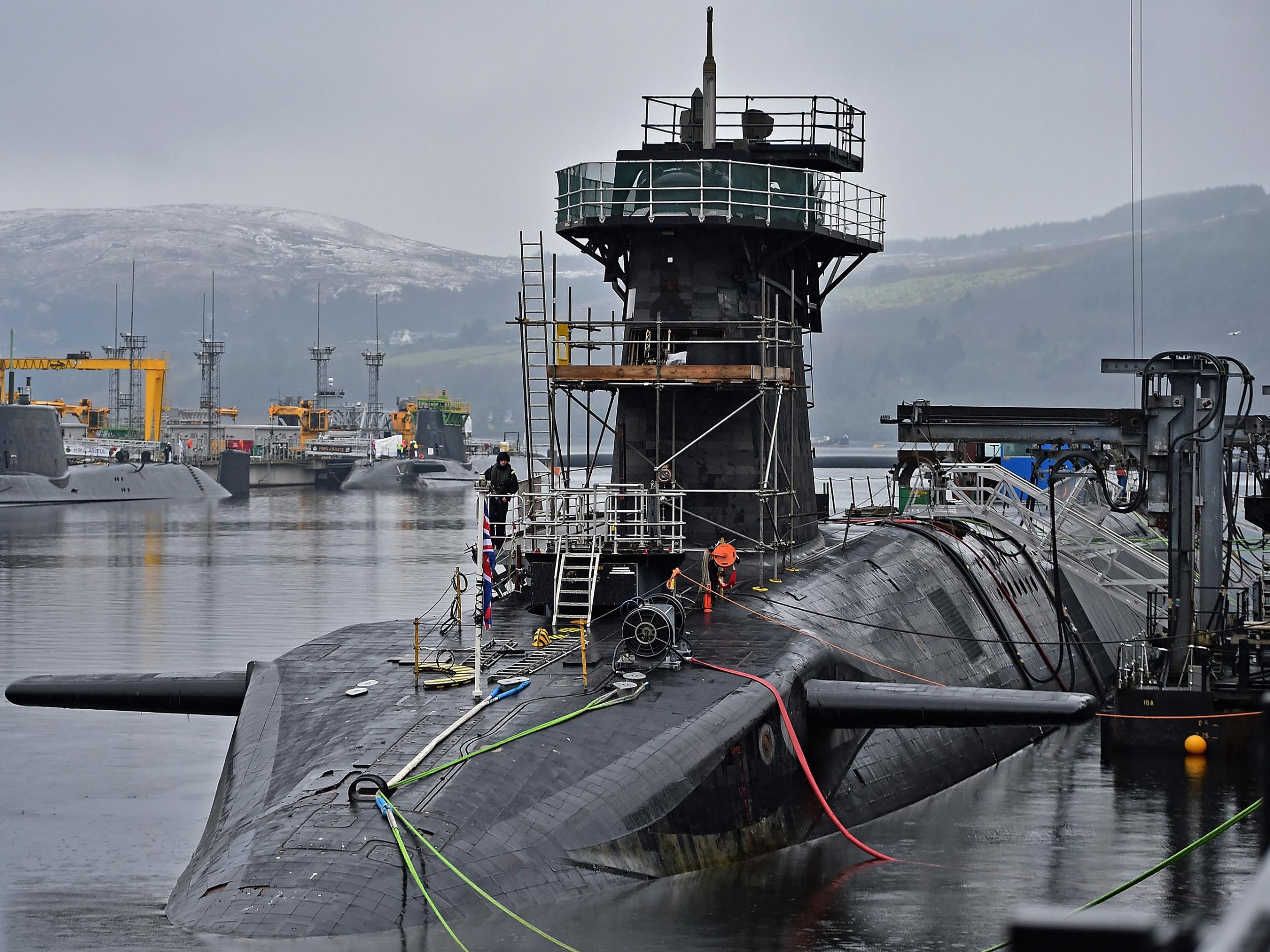Ministry of Defence faces £2.9bn shortage in Trident nuclear renewal programme, NAO warns
A quarter of the MoD's budget is expected to be spent on nuclear programmes, according to the spending watchdog

The National Audit Office has warned that an extra £2.9bn needs to be found in the Ministry of Defence's programme to renew and maintain the Trident nuclear deterrent over the next 10 years.
About a quarter of the whole defence equipment budget up until 2028 is set to go on nuclear projects according to NAO estimates, leading to warnings the department could face “significant” pressures.
Designing, producing and maintaining the fleet of nuclear submarines which carry warheads is forecast to cost the MoD a total of £50.9bn over the next decade, the spending watchdog said.
"Problems with the affordability of the enterprise could destabilise the department's overall equipment plan given that around a quarter of its planned spend on equipment relates to nuclear programmes," the NAO said.
Despite this, the MoD has insisted the report shows the nuclear programme is “on track”.
In this financial year alone, 14 per cent of the MoD’s total budget is expected to go on nuclear programmes, adding up to £5.2bn.
In order to fund renewal plans which involve replacing the ageing Vanguard-class submarines with four new Dreadnought-class boats, at a cost of £31bn, the MoD has already had to find £3bn in efficiency savings over the next 10 years.
It has also dipped into a £10bn contingency fund, taking £600m to pay for the the programme after – and it may be forced to ask the Treasury to take more out if it is to fill the £2.9bn spending gap, the NAO warned.
The MoD has also delayed work on a replacement for the Astute-class attack submarines by two years.
This year, submarines are expected to cost the MoD £1.8bn, missiles and warheads £1.4 billion, propulsion systems £790m and an extra £220m will go on on managing the enterprise.
The NAO warned that there are now skill shortages that need plugging across seven military sectors, with a need for 377 more skilled staff – although the MoD developed new ways of working with key contractors on the Dreadnought programme, BAE Systems and Rolls-Royce, in efforts to combat past “poor performance”.
Meg Hillier, the chair of the Commons Public Accounts Committee, said: "The budget pressures on the MoD's nuclear programme are significant.
"The department will need to make some critical decisions to get the programme on track financially."
Sir Amyas Morse, the head of the NAO, said: "The coming years are crucial.
"As the department invests heavily in the Dreadnought-class submarines and more widely across the enterprise, it needs to ensure that the new structures, processes and workforce operate effectively together to manage the £2.9 billion affordability gap across the enterprise."
A MoD spokesman said: "Not only is the nuclear deterrent our ultimate defence from the world's most extreme threats, but it is a true national endeavour which supports thousands of British jobs.
"The Dreadnought programme is one of the most complex engineering programmes ever undertaken by the UK and the NAO's report highlights our position that it is on track to be delivered on schedule and within the original estimated cost."
Join our commenting forum
Join thought-provoking conversations, follow other Independent readers and see their replies
Comments
Bookmark popover
Removed from bookmarks